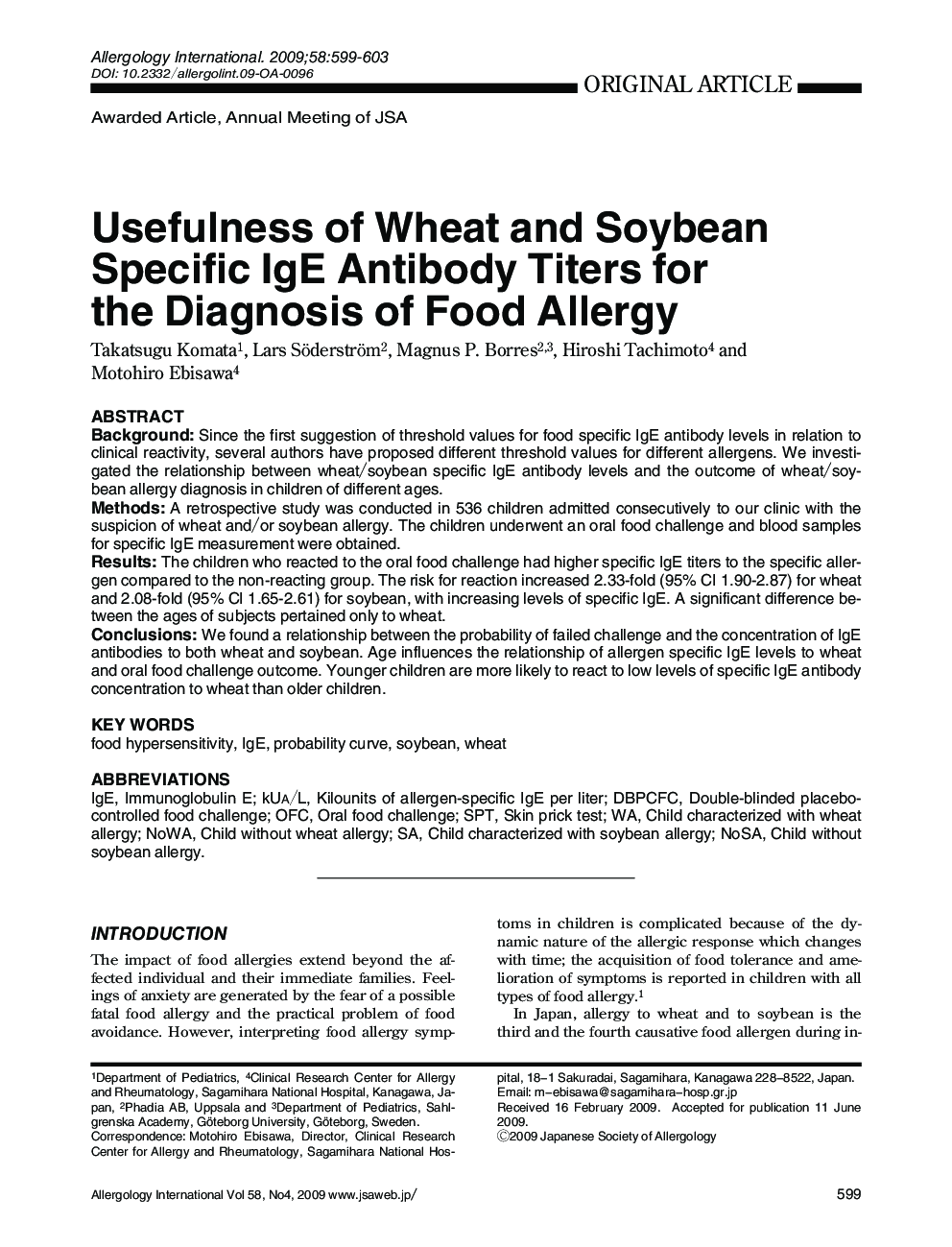| Article ID | Journal | Published Year | Pages | File Type |
|---|---|---|---|---|
| 3341014 | Allergology International | 2009 | 5 Pages |
ABSTRACTBackground: Since the first suggestion of threshold values for food specific IgE antibody levels in relation to clinical reactivity, several authors have proposed different threshold values for different allergens. We investigated the relationship between wheat/soybean specific IgE antibody levels and the outcome of wheat/soybean allergy diagnosis in children of different ages.Methods: A retrospective study was conducted in 536 children admitted consecutively to our clinic with the suspicion of wheat and/or soybean allergy. The children underwent an oral food challenge and blood samples for specific IgE measurement were obtained.Results: The children who reacted to the oral food challenge had higher specific IgE titers to the specific allergen compared to the non-reacting group. The risk for reaction increased 2.33-fold (95% CI 1.90-2.87) for wheat and 2.08-fold (95% CI 1.65-2.61) for soybean, with increasing levels of specific IgE. A significant difference between the ages of subjects pertained only to wheat.Conclusions: We found a relationship between the probability of failed challenge and the concentration of IgE antibodies to both wheat and soybean. Age influences the relationship of allergen specific IgE levels to wheat and oral food challenge outcome. Younger children are more likely to react to low levels of specific IgE antibody concentration to wheat than older children.
